Backpacking Africa allows you the freedom to submerge yourself in the culture in a way that almost seems impossible. Bucket list experiences and Safaris are only a small part of what this country is and it’s a marvellous dwelling for an intrepid and intellectual traveller. Backpacking this gorgeous continent is a major treat. Altogether, there massive amounts of diverse experiences, iconic landscapes, close wildlife encounters and memorable culture.
Reasons to go Backpacking Africa
- It’s cheap!
- To meet incredible people! (Locals and travel friends)
- To learn about other religions and cultures
- Wildlife experiences and safaris
- Phenomenal beaches
- Volunteering experience to give back to communities
- Fantastic hiking and diving opportunities
Backpacking Africa is Cheap!
In Africa, accommodation can be cheap with hostels starting to pop up in some places for as little as £5 – £10. If you own a small tent, you can take it with you, just remember to check on safety of camping in certain countries or areas. I went camping in Morocco and sleeping under the stars on the Atlas Mountains was one of the most memorable things I’ve ever done in my whole life!
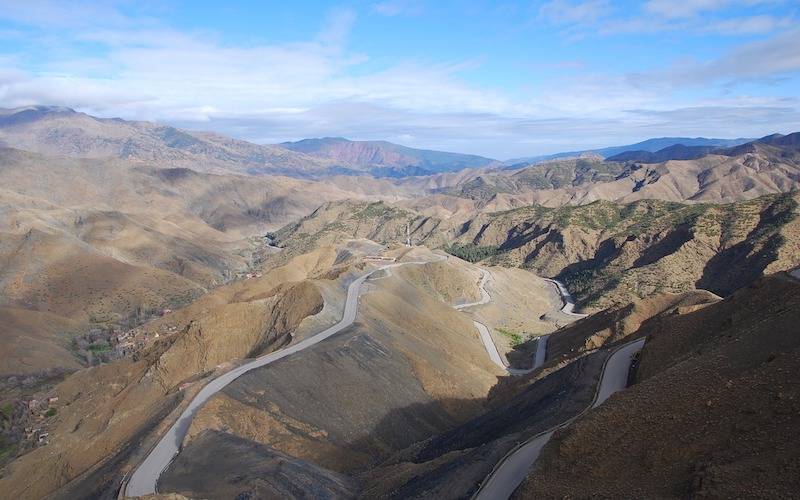
Eating at a local restaurant in Africa is an experience and very inexpensive. If you eat local and avoid booze for the duration of the trip, your spending will be cut by half. Enjoy the markets when it comes to shopping especially if you are staying in an Air BnB or hostel with a kitchen.
Plan your Route – but don’t Overplan for Backpacking Africa!
Depending on how much time you have available, you can roughly plan your route. I say roughly, because I am an advocate of slow travel and also mixing up your ‘plans’ based on places you hate and those you fall in love with. I adored Rwanda, but wasn’t such a fan of Uganda. I loved Morocco but found Tunisia more of a challenge.

You also need to consider security and current situations in certain countries. Some parts of Africa can be volatile or going through civil war. The great thing is, you can always utilise internal flights.
Focus on a Specific Area or Segment of Africa
Africa is MASSIVE so devise your plans accordingly. If your time is limited to anything less than a month, you will want to choose your ‘section’ carefully. For example, do you want to explore the North include Morocco (one of my favourites), Tunisia and Egypt? Fancy some Safaris? East Africa is your best bet including Kenya and Tanzania. Interested in West Africa? The Gambia, Ghana and Ivory Coast are great places to start.
Longer Itineraries – Consider a route such as Nairobi to Cape Town
If you are lucky enough to have a couple of months or more, you can take on a more extensive overland itinerary such as Nairobi to Capetown, which my friend Brittany did over 57 days. A couple of months in West Africa should see you travel overland from Dakar (Senegal) to Accra (Ghana)
Top Backpacking Africa Destinations
Morocco
Pretty much top of my list for Africa is Morocco – I just can’t get enough of the weather, the scenery, the food. Oh how I love to get lost in a Souk! You do eventually come out the other side! Exploring Kasbah’s and beautiful Arabic architecture is an essential part of backpacking Africa and Morocco is the best place to do just that. Morocco is a Muslim country and relatively free from violent crimes against people. There are cheap flights from UK to Morocco and it’s only around 3-4 hours max from London.
Remember that in the big cities you should avoid talking to boys or men who offer to show you the way somewhere or give you a ‘free guide’ – it will almost certainly not be free!
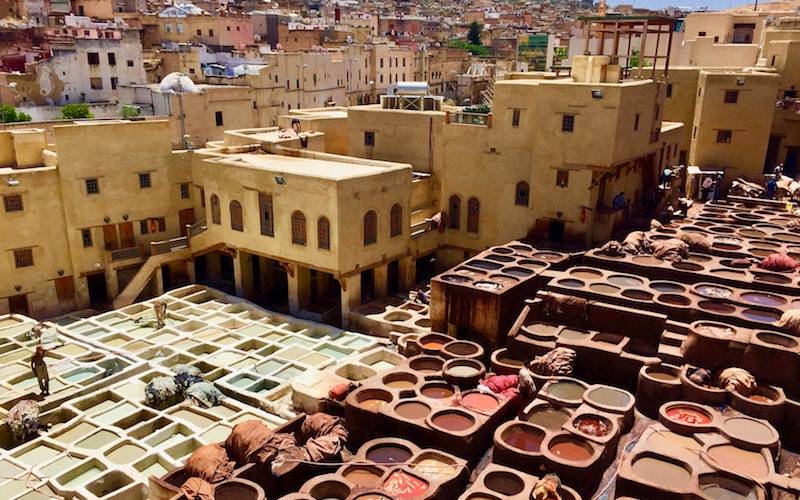
Kenya
Heading to Kenya? You will probably fly into Nairobi – don’t be intimidated by the massive metropolis and the bad reputation of the city, but do head out to the Savannah, lakes or beaches as soon as you can. Kenya is home to the Masai Mara – an amazing place for wildlife and culture. Take a safari and see the ‘Big Five’ – lion, leopard, Rhino, Elephant and Buffalo. There are also plenty of excellent little tourist havens such as Lake Naivasha or the white sands of Mombasa.
Malawi
Malawi is full of beautiful resorts, villages to explore and warm locals. Scuba diving, volunteering and Horse riding are popular activities for tourists in Malawi. Life revolves around the Lake, and Lake Malawi is where most points of interest are found. If you are visiting Malawi for wildlife, you will head to Liwonde National Park or Majete Wildlife Reserve. For trekking, head to Mount Mulanje to climb peaks for stunning views.
Namibia
Often known as ‘Africa for beginners,’ is a fantastic first African destination for solo travellers. Incredible vistas. Namibia is home to the coastal town of Swakopmund, Fish River Canyon and Etosha National Park. Stop off at the German colonial town of Luderitz unexpectedly found in the Namib desert (Namibia was a German colony from 1884 until 1946 when it was bought under UN control).
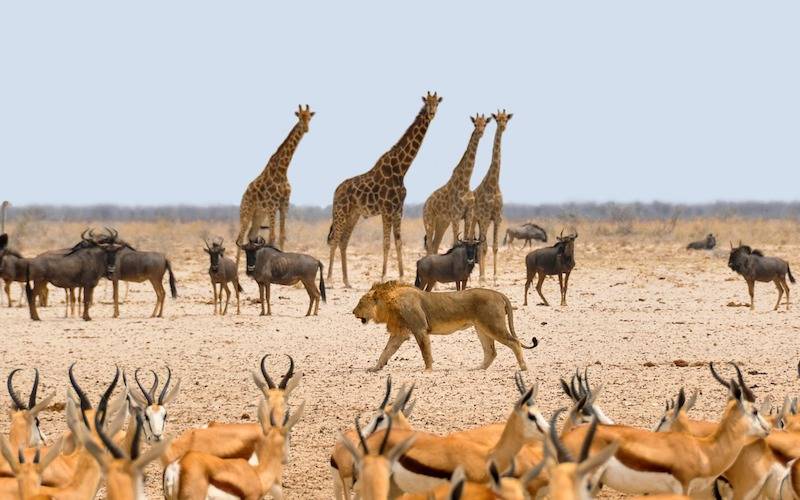
South Africa
South Africa is a country that holds a special place in my heart, as it is where I lived at the age of 5 years old. Full of wildlife, adventure and natural beauty, South Africa hold many sacred childhood memories for me, when I was young enough to be oblivious of the angst of apartheid. Enjoy the Garden Route which spans across 200km of remarkable scenery. The ‘African Penguin’ is found on islands near Port Elizabeth, my childhood home town! Take a ride up table mountain by cable car and look out for the rock rabbits or ‘Dassie’s’ as they are known locally. Views from the top are phenomenal.
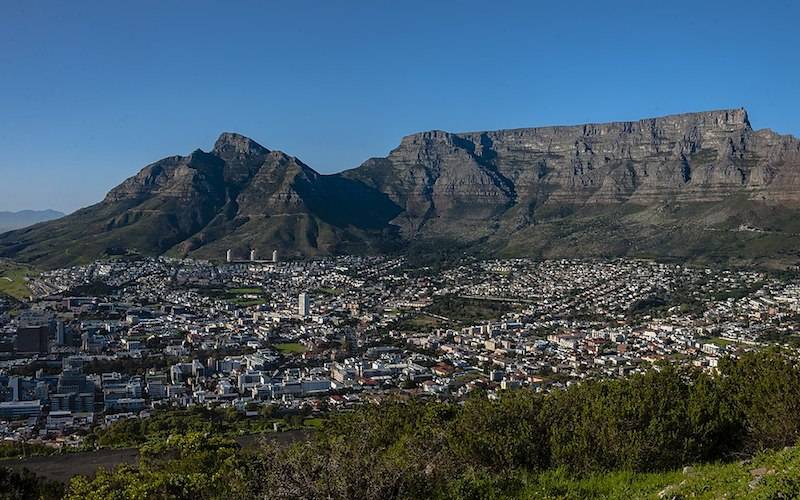
Tanzania
Tanzania is a delight for trekkers, wildlife spotters and volunteers alike. Take a Serengeti safari, climb Kilimanjaro or volunteer in a local community in Arusha. Tanzania really has everything. Looking for a more relaxing pace? Take a break on the beautiful island of Zanzibar – one of the best tours destinations in the world.
Uganda
More challenging and ‘raw’ than neighbouring Kenya, Uganda is very welcoming and has many track destinations which are definitely worth the effort. Head out of Kampala as soon as possible (I hated Kampala!) and go for somewhere like Jinja or the beautiful Ssese Islands as a more relaxing base. If you’re into wildlife, head to Bwindi Impenetrable National Park (chimpanzees and gorillas) or Murchison Falls (waterfalls and hippos!)
Rwanda
Known as the ‘Switzerland’ of Africa, the clean and well maintained streets of Kigali are sometimes referred to as the result of ‘guilt money’. The international community failed to step in during the 1994 genocide. But despite it’s tough and turbulent past, Rwanda is now increasing in popularity with the backpacking community. With excellent hotels, great cafes and restaurants in Kigali and a safe reputation, it could be the number 1 choice. Rwanda is the ideal place to see the Mountain Gorillas – make sure you book in advance as you need a permit and guide.
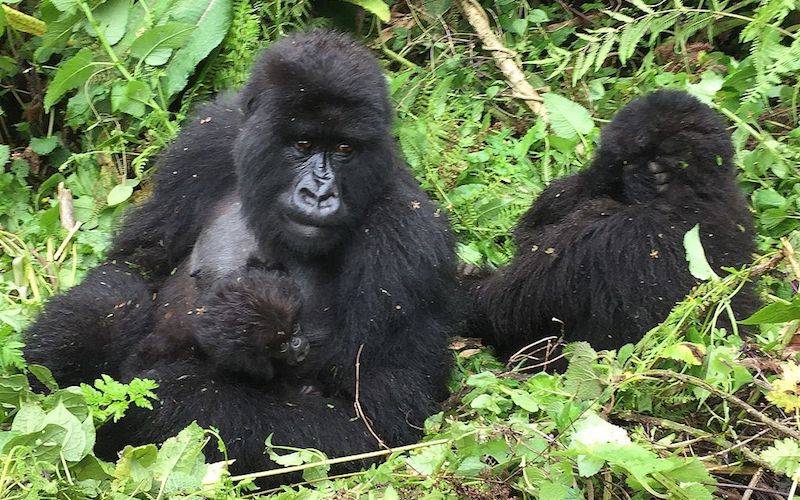
Mauritius
The island of Mauritius may feel like a French and Indian melting pot of food and culture, but it is geographically a part of Africa. Mauritius is an amazing place for snorkling and diving due to the coral reefs that protect it. Don’t miss Pamplemousses Botanical Gardens and the amazing temples in Mauritius such as Ganga Talao. In the North, you can stay near the cosmopolitan beach town of Grand Baie for shopping and water sports activities. If you are up for hiking, stay in La Morne in the South West.
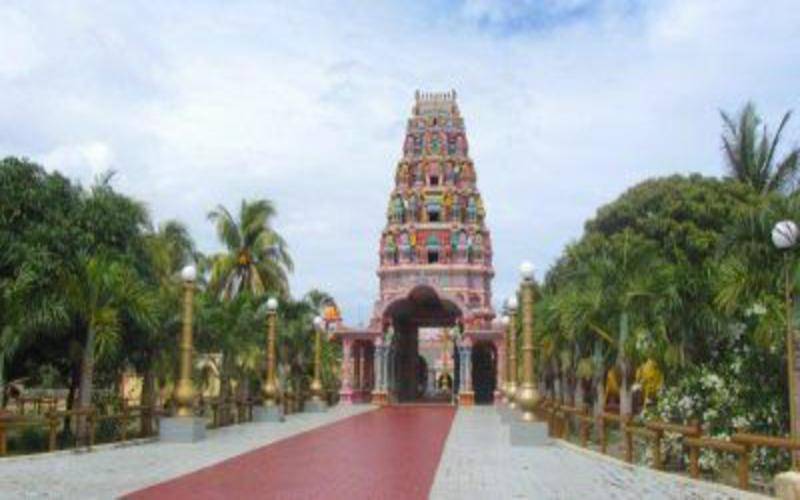
A Word of Warning about Volunteering
Volunteering in Africa is a great and rewarding way to mix with locals and help communities. I volunteered in Rwanda and it was one of the most insightful experiences of my life – a massive turning point and great for my personal development.
However, be wary of who you volunteer for and what activities you do. Some orphanages ciphen off gifts to the directors and their families. Many donated items never get to those who need it and would be better being bought locally to keep local shopkeepers in their jobs. Some orphanages and medical centres allow volunteers to do things that they possibly should’t be doing and without training. Orphans become attached to Western volunteers who simply leave them a couple of weeks or months later. Many volunteers from abroad are not criminal record checked and there are not many safeguarding procedures in place.
I’m not saying don’t volunteer at all, I think that the right volunteering experience can be valuable. I’m just saying think about it carefully and do a project that suits your skill set – teachers should teach, nurses and medical staff should be in medical centres and vets or dog handlers should be in animal rescues. Make sure that whatever you are involved in is well organised and above board. Ensure that projects are sustainable and not wholly dependent on Westerner volunteers.
Is Backpacking Africa safe? 4 Major Concerns
Safety of Food and Water
It is important to show caution about what to eat and drink. Fortunately, it is easy to prevent Traveller’s diarrhoea and other sicknesses. It is a major precaution to avoid tap water. Select bottled water or other bottled drink and avoid ice cubes. For a short time, boiling water can kill most microorganisms. Always eat fresh food and make sure it is thoroughly cooked.
A café that cooks to order is ideal. A street seller strolling around with chicken on a stick is not. The last rule is to abstain from eating raw vegetables and fruit unless they’ve been sanitized correctly or if they have a peel. Oranges and Bananas shouldn’t be any threats, but strawberries or an apple could cause sickness. If you’re cooking for yourself, you can buy special sanitizing solution in many grocery stores.
I had a bad experience with this when I went on holiday to Tunisia, but I think that because it was on a package holiday I let my guard down. Saying that, I’ve also had sickness and diaorrhea in Morocco when I was backpacking Africa. Sometimes, you cannot avoid being ill, but you should be ill for more than around 3 days. If you are sick for longer than that, then it’s time to think about seeking medical attention.
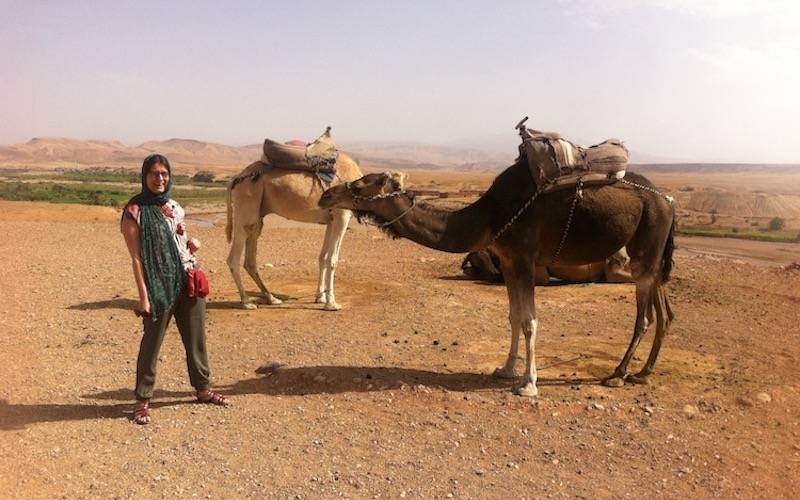
Disease and Illnesses
DISCLAIMER: The information on this blog is not a substitute for qualified, professional medical advice. Always seek the advice of your doctor or other qualified health professional. Never disregard professional medical advice because of something you have read on this website. Visitors who use this site and rely on any information do so at their own risk.
Most diseases and illness can be prevented and treated through the right vaccines and medications. You can look up the specific country you are visiting and read all the health warnings. You are likely to need Hepatitis and Typhoid vaccines up to date, plus yellow fever for some areas (Rwanda). If you are working with animals or will be close to animals, consider getting the rabies vaccine. Check what you need with your doctor at least 3 months before you travel.
Other diseases like Malaria (in which there is no vaccine) can thankfully be easily prevented. The best way to do so is to take anti malaria tablets while you are in an affected area. Get good doctors advice on which anti-malarial to take.
Bug-spray and a bed net are helpful too. All other ailments can also usually be avoided by talking to locals about potential hazards in the area. For example, they may warn you of a nearby lake or river that is unsafe to swim in.

There are different tropical diseases to be aware of such as worms and parasites. It’s important to be aware of these and seek medical attention for anything untoward and out of the ordinary. A guy I met travelling in Rwanda was losing a lot of weight, even though he was eating pretty much all of the time. It turned out that he contracted worms in Madagascar.
Basically, get your vaccines, take your medicines, be aware of the hazards, and consult a doctor before you go and if you notice any unusual signs and symptoms during or after your trip.
Accidents and Injuries
Accidents and injuries are common in African countries. Always take out comprehensive travel insurance to cover you against illness, accidents and a flare up of pre-existing conditions (more about that below).
To minimize potential threats, consider renting a car, hiring a driver, or switching to a different bus if you notice your driver is careless. Motorbike taxis don’t always require a helmet in Africa – for example, in Rwanda helmets on motorbikes are compulsory for drivers and passengers, but in Uganda they are not.
Choose transportation with higher safety records if possible. The money spent on a more professional bus company, a ferry instead of a cargo boat, or a train instead of bus may be money well spent.
For all other types of injuries, use some basic common sense. However, wild animals have this name for a reason – no matter how bad you want that picture, make sure you keep a safe distance.
Of course, accidents are bound to happen, but thankfully health care in many African countries is improving.
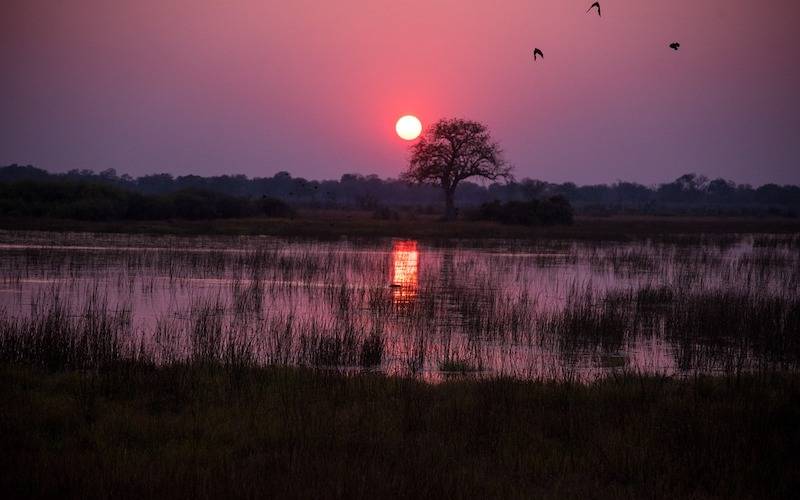
Crime and Violence
The truth is, most people will feel safe traveling Africa. In fact, the most common crime tourists experience is pick-pocketing (which can be easily prevented). Again, by using common sense, taking basic precautions, and getting yourself out of situations immediately when something isn’t right, the average person will not suffer any serious problems.
Another great solution is to talk to trusted locals. Often the staff at your hotel or backpackers lodge can be a great resource for knowing what is and is not okay. So, if they tell you not to walk alone at night, then don’t walk alone at night. If they tell you not to go to a certain area, then don’t go to that area.
Top tips for Backpacking Africa
You’re going to need some Dollars
For most visas, you need to pay in dollars. You can also use dollars for a lot of activities. Oh, and make sure that they are crisp and free from tears – my slightly crumpled dollars got refused at the Uganda border! Thankfully I had a Rwandan friend on hand who helped me out!
Always carry these Essentials
Hand sanitiser, eye drops (sore eyes from dust is common), phone charger/power bank, microfiber travel towels, insect repellent and medication.
Get Travel Insurance
Travel insurance is an absolute must for any trip to Africa in order to cover any expenses such as medical bills. A good travel insurance company will also cover you for lost baggage and against theft.
Travel app – MAPS.me is a maps app that lets you download map data for a country or region so you can use it when you have no data connection.
What to Pack for Backpacking Africa
Essentials
Other than the usual packing (clothing, passport, money), what do you need to pack for backpacking Africa? Anti material tablets and a mosquito net are a must if you are travelling in an area with the chance of Malaria mosquitos. Sunglasses with UV protection are important. A light headscarf that doubles up as a sarong will come in handy for places of worship, beaches and covering shoulders.
Basic First Aid Kit
Your medical or first aid kit may be quite extensive depending on the country that you go to and the activities that you will take part in. As a general rule, for Africa, I would recommend packing…
- Antihistamines
- Plasters, gauze and light dressings
- Anticeptic cream such as Germolene
- Dioralyte – for replacing lost salts
- Immodium – in case you need to take long journeys!
- Suncream
- Insect repellant
- Thermometer
- Pain killers and anti-inflamatories such as Paracetomol and Ibuprofen
- Any prescription medication e.g. inhalers or anti-epileptics
Check with a doctor before you travel that the medication you pack is suitable for your medical needs and does not conflict with any pre-existing conditions or prescribed meds.
Footware
I’d recommend three pairs of footwear – walking boots, one pair of comfortable but smart dress shoes (if you will be going out or on business meetings) and some comfortable sandals for beachwear.
Water Bottle
If you are going somewhere with drinkable water, a drinking bottle is good to take and better for the environment than repeatedly buying bottled water.
Clothing
Clothing for backpacking Africa will vary depending on your destination, but remember that many countries in Africa can be more conservative than the West. Pack long trousers as well as shorts, and tops and T shirts that cover the shoulders. Cotton and linen trousers are a good option, as are comfortable and light long sleeved tops. Limit yourself to just one pair of jeans, if that. Pack warmer practical trekking clothing such as thermals, thick socks, fleece and mountain jacket if you plan on trekking at a height such as climbing Kilimanjaro.
